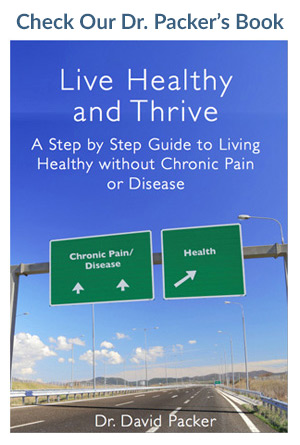 If you have joint or back pain, you may be among the many people who suspect their condition worsens with changes in the weather. But does this phenomenon exist? And if so, why can the weather impact your joints?
If you have joint or back pain, you may be among the many people who suspect their condition worsens with changes in the weather. But does this phenomenon exist? And if so, why can the weather impact your joints?
As a chiropractor in the Chesapeake region for more than 20 years, one of the common questions my patients ask about is the relationship between weather and pain. In this article, I will explain what scientists currently know about the link between weather, barometric pressure, and pain.
Medical Evidence for Weather and Pain
Scientists have studied various weather-related factors when it comes to back and joint pain. These include:
- Precipitation
- Temperature
- Relative humidity
- Barometric pressure
- Wind direction
- Wind speeds
- Wind gusts
A study has shown that More than two-thirds of people with osteoarthritis perceive their pain worsens with weather changes. But overall, medical studies have not shown a clear relationship between precipitation and joint or back pain. One study of more than 11 million Medicare claims found no link between pain and the number of doctors’ office visits during rainy weeks. However, a limitation of this study is that a person might not get an appointment with their doctor immediately upon noticing an increase in pain. Further, another study showed that online searches for information about pain tend to increase with poor weather.
Other studies have had conflicting results based on the location of pain in the body. One study of almost 1000 patients found that wind speed and wind gusts, but not other-related factors, were linked to a small increase in back pain. Meanwhile, a study of 200 patients with osteoarthritis of the knee found that changes in air pressure and temperature were linked to an increase in knee pain.
How Can Weather Influence Pain?
Scientists are not sure how changes in the weather may impact pain. However, they have some educated guesses as to why some people may notice increased pain when the weather changes:
- Loss of cartilage: Arthritic joints typically have a loss of cartilage, which helps to cushion the joint. It is possible that with cartilage loss, the nerves inside the joints might be better able to sense changes in barometric pressure.
- Expansion and contraction of tissues: Drops in barometric pressure which are linked to poor weather means less air pressure on the body. This allows tissues to swell slightly, causing tissues like tendons and muscles to expand, which may lead to pain.
- Thickened fluids in the joints: It is possible that a drop in temperature may cause the lubricating fluids inside your joints to become thicker, which may make them feel stiffer.
- Inactivity: Often, people stay indoors when it is cold and rainy outside. Some doctors think that sitting indoors more than usual during poor weather may cause stiff, painful joints, rather than the weather itself.
How To Manage Weather-Related Joint and Back Pain
As a spine management physician, I am an expert in helping my patients treat joint and back pain that worsens with poor weather. Some tips include:
- Stay warm: Warmth can help combat increased pain. Warm showers or baths, dressing in layers, increasing the heat in your home, or using a heating pad may all help.
- Stretch: Gentle stretches can help stiffened joints. This includes yoga and swimming.
- Keep a healthy weight: By keeping a healthy weight, you ease pressure on aching joints, relieving pain.
- Avoid strain: Avoid activities that strain your joints or muscles during poor weather, like lifting heavy objects.
- Maintain healthy habits: Keeping up your overall health, including good nutrition and sleep habits, can help ease your pain.
Managing Weather-Related Pain at Precision Spinal Care
As a certified NUCCA chiropractor and spine management physician, I strongly believe that the first visit is best used as a time to fully assess your condition. This includes a thorough exam and a discussion about your medical problems and the factors – like the weather – that impact them.
After your exam on the first visit, we will discuss my evaluation. If your pain changes with the weather, I will counsel you on specific instructions for managing your pain during those times.
If chiropractic is not the best solution for your needs, I will recommend the type of specialist who is most appropriate for you.
If chiropractic care is the best way to meet your care goals, we will work together to develop a plan to meet your needs. I make sure to set reasonable expectations and milestones for your recovery. At regular intervals, I will reevaluate you to make sure you are meeting these goals and that chiropractic remains the best choice for you.
We understand that you need to explore all your options when you look for expert chiropractic care. At Precision Spinal Care, we are happy to help you determine the best way to address your specific needs and discuss all the options with you and your family.
At Precision Spinal Care we are happy to help you determine the best way to treat your herniated or bulging discs. Call our office at (757) 382-5555 to speak with me or set up a consultation. You can also set up an appointment online here.

